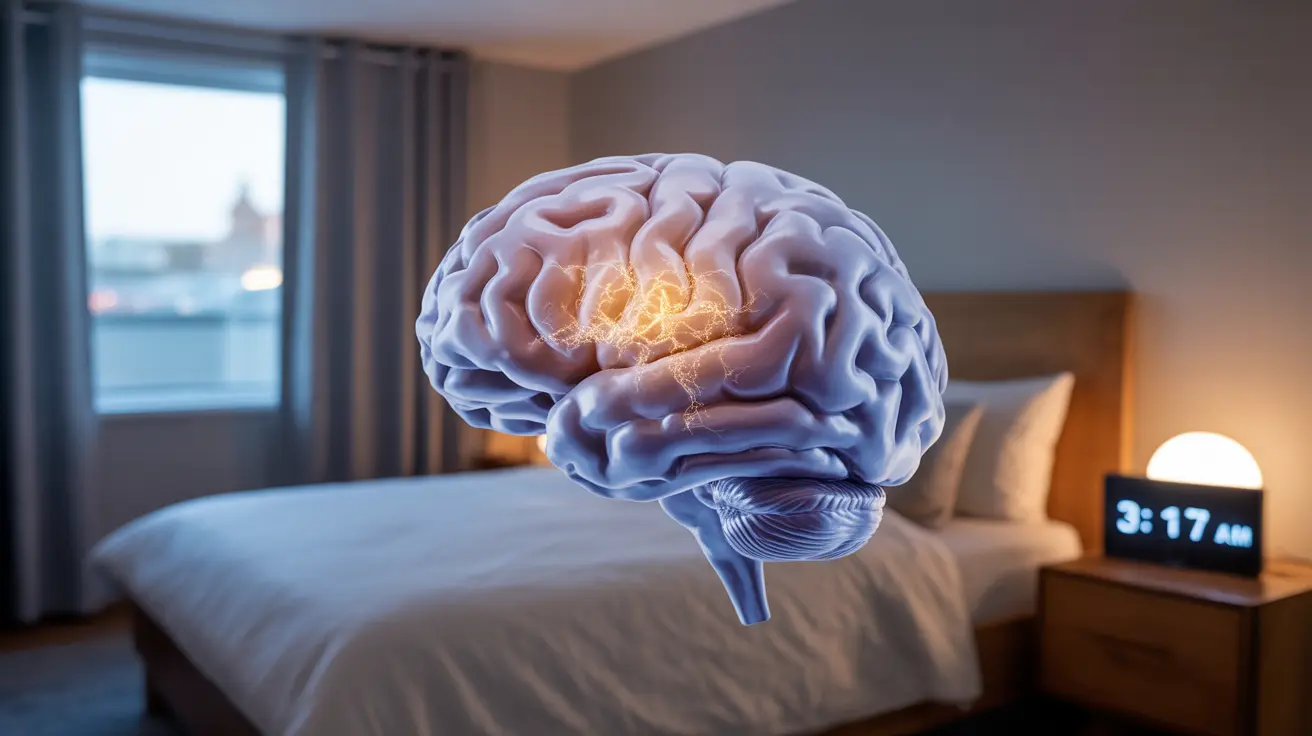Experiencing migraines at night can be particularly distressing, disrupting your sleep and leaving you exhausted the next day. These nocturnal headache episodes affect many migraine sufferers and can present unique challenges for both diagnosis and treatment. Understanding why these attacks occur during sleep and how to manage them effectively is crucial for maintaining your quality of life.
In this comprehensive guide, we'll explore the specific causes of nighttime migraines, how to distinguish them from other types of headaches, and effective strategies for prevention and relief. Whether you're dealing with occasional episodes or frequent attacks, you'll find valuable information to help you better manage your condition.
Understanding Nighttime Migraines
Nighttime migraines, also known as nocturnal migraines, can either begin during sleep or wake you from sleep. These attacks often occur between 4:00 and 9:00 AM, corresponding with early morning hormonal changes in the body. The pain is typically more severe than daytime episodes, possibly due to delayed treatment and the body's natural pain-processing mechanisms during sleep.
Common Triggers and Risk Factors
Sleep-Related Triggers
Several sleep-related factors can trigger migraines at night:
- Irregular sleep schedule
- Sleep deprivation
- Oversleeping
- Sleep apnea
- Teeth grinding (bruxism)
- Poor sleep position
Environmental Factors
Your sleeping environment can significantly impact migraine occurrence:
- Room temperature fluctuations
- Excessive light exposure
- Noise disturbances
- Strong odors
- Dehydration before bed
Distinguishing Nighttime Migraines from Other Headaches
Nighttime migraines have distinct characteristics that set them apart from other nocturnal headaches. Unlike tension headaches or hypnic headaches, migraines often include:
- Throbbing or pulsating pain
- Sensitivity to light and sound
- Nausea or vomiting
- Visual disturbances
- Pain typically affecting one side of the head
Treatment Strategies and Management
Immediate Relief Methods
When a nighttime migraine strikes, consider these immediate interventions:
- Taking prescribed acute migraine medication
- Applying cold or hot compresses
- Practicing deep breathing exercises
- Staying hydrated
- Using aromatherapy (if scents don't trigger symptoms)
Preventive Measures
Long-term management focuses on prevention through lifestyle modifications:
- Maintaining consistent sleep schedules
- Creating a calm sleep environment
- Avoiding evening trigger foods
- Managing stress through relaxation techniques
- Regular exercise (but not close to bedtime)
When to Seek Medical Help
Consult a healthcare provider if you experience:
- Frequent nighttime migraines (more than once per week)
- Severe pain that doesn't respond to treatment
- New or changing migraine patterns
- Additional neurological symptoms
- Sleep disruption affecting daily function
Frequently Asked Questions
What causes migraines to happen at night or wake you up from sleep? Nighttime migraines can be triggered by various factors including irregular sleep patterns, hormonal changes during early morning hours, sleep disorders like sleep apnea, and environmental factors such as room temperature or lighting changes.
How can you tell the difference between a migraine and a hypnic headache at night? Migraines typically involve throbbing pain, often on one side of the head, accompanied by sensitivity to light and sound, and possibly nausea. Hypnic headaches are usually less severe, don't have associated symptoms, and occur exclusively during sleep.
What are the best treatments and home remedies for nighttime migraine attacks? Effective treatments include prescribed migraine medications, cold or hot compresses, staying hydrated, and practicing relaxation techniques. Creating a consistent bedtime routine and maintaining good sleep hygiene can also help manage symptoms.
Can improving sleep habits or fixing your sleep schedule help prevent migraines at night? Yes, maintaining regular sleep patterns can significantly reduce nighttime migraines. This includes going to bed and waking up at the same time daily, creating a relaxing bedtime routine, and ensuring your sleeping environment is conducive to quality rest.
When should you see a doctor about frequent or severe migraines that occur during sleep? Seek medical attention if you experience nighttime migraines more than once per week, if the pain is severe and unresponsive to treatment, if you develop new or unusual symptoms, or if your sleep disruption significantly impacts your daily life.




